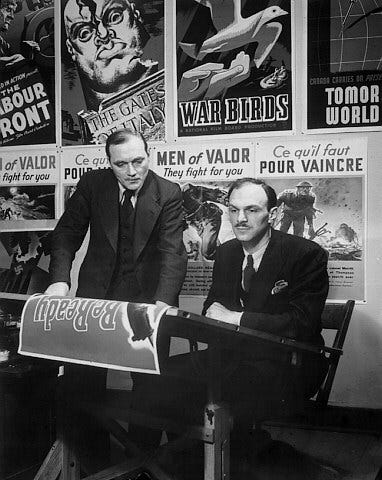Entertainment should not distract our leaders from governing.
As Taylor Swift and other woke entertainment stars continue to influence the masses, the question arises: "Should society be influenced by celebrities that are against the national interest?"

On November 22nd, Prime Minister Justin Trudeau, along with several colleagues, attended a Taylor Swift concert in Toronto. While this may have been a personal moment of leisure, it took place on a day when anti-NATO and anarchist protests were unfolding in Montreal, Quebec—protests marred by Anti-Semitic rhetoric, radicalism, and anarchist violence(as shown above). This contrast raises an important question: should our leaders be prioritizing entertainment over national matters of urgency?

Taylor Swift and the rest of the woke band of entertainment professionals, tend to observe the purposeless pursuit of promoting a vindictive culture that strives to go against the national interest of Canadians. So much so, that even our prime minister Justin Trudeau was seen dancing at her concert last Friday, while violent Anti-Semitic anarchist and Anti-NATO protests where occurring in Montreal. If “losing your focus” was a person, Justin Trudeau would be that person. It may sound cruel to many of the woke celebrity fan clubs in Canada, but I have a question for you: was that concert worth it? Look, entertainment is an activity, it can definitely be part of your job, but it must not seek to go against the national interest of the Canadian people. Especially when that national interest is to protect the sovereignty of our people in Canada.

For Prime Minister Trudeau, attending this concert in the midst of domestic turmoil sends a troubling message. It suggests a lack of focus on the pressing issues facing the country. Shouldn’t the leader of the nation be addressing concerns over public safety, social unrest, and international diplomacy instead of mingling with the elite at pop concerts? As Canadians, we should be asking ourselves: is this the kind of leadership that prioritizes the interests of the people, or is it simply a distraction?
The Ancient Entertainment Industry
Historically, entertainment has always been something that was for recreational purposes. The oldest theatrical play known as “The Persians”, was written by Aeschylus during Ancient Greece, to promote Ancient Greek idolatry in honoring the Greek god of Zeus; demonstrating how powerful he was upon their society.

Despite this being a play that was intended for people's leisure time, it was a piece of entertainment that sought to uphold the national interest of Ancient Greece in terms of its devotion to the religion of the Ancient Greek ruler of Pericles.
North American Entertainment Industry: Evolution with Regulations
Fast-forward to the year 1933, when The Catholic Legion of Decency was founded, it had played a significant role in shaping the moral landscape of the entertainment industry in Hollywood's film and media productions throughout much of the 20th century.

It emerged as a Catholic effort to control the content of films and ensure that media adhered to religious and moral standards. This organization, alongside the more formalized Hays Code, implemented strict guidelines that filmmakers had to follow to avoid offending religious sensibilities. The Hays Code, which became the industry standard, prohibited depictions of adultery, extramarital affairs, criminal activities, and anything that could be considered morally corrupting. It also outlawed the portrayal of "miscegenation," or interracial relationships, and placed severe restrictions on how women could be represented on screen, reflecting traditional Catholic views on marriage and sexuality.
As Hollywood evolved in the late 20th century and into the 21st century, these rigid guidelines slowly eroded, with the rise of more liberalized attitudes toward sex, relationships, and social issues. By the 1960s, the Production Code was replaced by the MPAA rating system, which provided filmmakers with more freedom while still allowing for content to be regulated for appropriate audiences. This transition marked a significant shift away from the Catholic Church’s influence over media.
In the modern era, artists like Taylor Swift present a stark contrast to the ideals promoted by the Catholic Legion of Decency. Swift's lyrics often explore themes of love, heartbreak, self-empowerment, and revenge—topics that would have been considered inappropriate under the stringent guidelines of the Legion. Her songs openly address emotional vulnerabilities, romantic relationships outside of marriage, and personal growth in ways that challenge traditional norms, often empowering young women to take control of their own narratives. This type of content, especially lyrics that discuss romantic autonomy or breakups in an unapologetic manner, would have certainly gone against the Catholic guidelines that sought to limit portrayals of non-traditional relationships or personal empowerment that could be seen as morally "dangerous." Our leaders, as custodians of the public good, should be mindful of the influence that celebrity culture can wield, ensuring that they themselves also do not become distracted by it when critical issues demand their attention.
At the heart of the matter is the role of leadership and where its priorities lie. Attending a concert is not inherently wrong, but doing so while ignoring the significant national protests in Montreal raises concerns about where the government's attention is focused. Entertainment, while important in enriching our lives, should not dictate political priorities or sway our national interests. Leaders must remember that their duty is to protect and preserve the well-being of all Canadians, especially in times of unrest.
Canada’s Film and Entertainment Industry is necessary, but it has to serve our interests.
Akin to the United States entertainment industry of Hollywood. Canada's film and entertainment industry, has also evolved significantly since the post-Confederation era in 1867, despite the unique challenges of existing alongside Hollywood. Early Canadian cinema focused on documentaries, particularly after the creation of the National Film Board (NFB) in 1939, which aimed to promote Canadian stories and culture. The NFB played a key role in developing Canada's cinematic identity during World War II and beyond.

By the 1950s and 1960s, Canadian filmmakers like Claude Jutra and Gilles Carle emerged, particularly in Quebec, where the distinct cultural identity fueled a growing film scene. During this time, Canadian cinema was often overshadowed by Hollywood, and the country’s filmmakers struggled to compete for funding, distribution, and screen time. However, federal policies aimed to protect Canadian content, such as the Canadian Film Development Corporation (CFDC), established in 1967 to stimulate domestic production.
The 1970s saw significant growth in the industry, supported by tax incentives that boosted Canadian film production. This era produced notable films such as Who Has Seen the Wind (1977) and The Grey Fox (1982), which became critical successes and helped to shape a distinctly Canadian voice in cinema. Quebec, in particular, became a powerhouse of film production, with directors like Denys Arcand achieving international acclaim.
Canada's entertainment and film stars, such as Mary Pickford, a founding member of Hollywood’s United Artists, influenced both Canadian and global cinema. More recently, Canadian actors like Ryan Reynolds, Rachel McAdams, and directors like David Cronenberg and Denis Villeneuve have earned international recognition, further shaping Canada's cultural impact globally. These figures not only enhance Canada's presence on the world stage but also reflect the nation's values of diversity and storytelling, helping to form a collective Canadian identity.
The film industry remains a vital part of Canada's cultural landscape, bolstered by institutions such as Telefilm Canada, which promotes the production and distribution of Canadian content across the world.
Nonetheless, as celebrity culture continues to influence society, we must reflect on its growing role in shaping public opinion and politics. Should figures like Taylor Swift have such sway over societal values, and more importantly, should our political leaders allow themselves to be swept up in this world when there are real, pressing issues facing the nation? At the very least, Canadians deserve a government that puts their concerns ahead of leisure, especially when that leisure is tied to a culture that often goes against the national interest.
References
Canadian Film History: 1974 to Present. (n.d.). The Canadian Encyclopedia. https://www.thecanadianencyclopedia.ca/en/article/30-key-events-in-canadian-film-history
Morris, P. (n.d.). The History of Canadian Cinema. The Canadian Encyclopedia. https://www.thecanadianencyclopedia.ca/en/article/30-key-events-in-canadian-film-history
All That’s Interesting. (n.d.). Hays Code: The Catholic-backed censorship that tamed early Hollywood. https://allthatsinteresting.com




